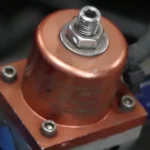Car accidents can be daunting, and your vehicle’s airbag system plays a critical role in keeping you safe during such incidents. After an accident, you may wonder if the airbag sensors need replacement. Understanding the function and repair process of these vital components is essential to your overall safety.
Airbag sensors detect when a collision occurs and help deploy the airbags to minimize injury. While the airbags themselves are designed to inflate only once, the sensors might need a reset or replacement depending on the damage sustained. It’s crucial to have your vehicle thoroughly inspected, ensuring a properly functioning airbag system is in place for any future incidents.
Learning About Airbag Sensors
Function of Sensors
Airbag sensors play a crucial role in your car’s safety system. These sensors are designed to detect a collision and initiate the deployment of airbags to protect you and your passengers. When an accident occurs, the sensors send a signal to the airbag control unit, which then determines if the airbags need to be deployed. This process happens extremely quickly, often within milliseconds, to ensure maximum protection during a crash.
It’s important to keep in mind that airbag sensors are very sensitive and any issues with them could result in the airbag not deploying properly or not deploying at all. This is why it’s essential to have your car’s airbag system checked regularly, especially after an accident.
Types of Sensors: Crash and Impact
There are two primary types of airbag sensors in your vehicle: crash sensors and impact sensors. Both types work together to ensure that your airbags deploy effectively in a collision.
Crash Sensors: These sensors are typically located in the front and rear of your car. They measure the deceleration forces during a crash, helping the airbag control unit determine if the airbags need to be deployed. Some crash sensors are one-time-use components, meaning they need to be replaced after an accident in which the airbags have been deployed.
Impact Sensors: These sensors are often found in the car’s doors, bumpers, and other areas that may be subject to impact during a collision. Impact sensors detect and measure the force of an impact, providing additional data for the airbag control unit to use when deciding whether or not to deploy the airbags.
After an Accident: Replacement or Repair
Determining the Damage
After an accident, it’s crucial to assess the damage to your airbag system. Check the dashboard’s airbag light to determine if the airbags deployed or if the sensors have been triggered. If the airbags did deploy, they will definitely need to be replaced. If the airbag light is on but the airbags did not deploy, it’s still recommended to get your car inspected by a professional to determine if there’s any hidden damage or if any sensors need to be reset or replaced.
Resetting vs Replacing Sensors
If the damage to your airbag system is minimal, you might only need to reset the airbag sensor or module. This can be done by a qualified mechanic who has the right diagnostic tools and knowledge to reset the airbag system properly. However, if the sensor or airbag module has been damaged, they must be replaced to ensure the safety of your vehicle’s occupants in case of another accident.
It’s worth noting that the airbag control module might also need to be replaced or reprogrammed after an accident. Be sure to discuss this with your mechanic during the inspection process.
When to Replace the Airbag Sensor
When determining whether to replace the airbag sensor, consider the following factors:
- If the airbag light is on after the accident, it’s a strong indication that the sensor may be damaged.
- If the airbags deployed, you definitely need to replace the sensors.
- If a mechanic’s inspection results indicate damage to any of the sensors, replacement is necessary.
- If the airbag control module needs reprogramming or replacement, it’s likely that the sensors need to be replaced as well.
Remember, prioritizing safety is paramount when dealing with airbag systems. When in doubt, consult with a professional mechanic and always lean on the side of caution when making decisions about repairs or replacements related to your airbag system.
Airbag Deployment and Replacement
Reasons for Airbag Deployment
Airbags play a crucial role in protecting you during a car accident. When a collision occurs, sensors within your vehicle detect the impact and deploy the airbags. These airbags inflate rapidly to protect you and your passengers from severe injuries. Upon inflation, airbags deploy at different locations within your car, such as the steering wheel, dashboard, and side seats, depending on the type of collision.
Choosing the Right Replacement Airbag
After an airbag deployment, it’s necessary to replace the deployed airbags to ensure your car’s safety system is ready to protect you in case of another accident. When choosing a replacement airbag, make sure it is compatible with your specific vehicle make and model. It is also essential to use only certified, high-quality parts to guarantee their effectiveness and compliance with safety standards.
Professional Airbag Installation
Your safety is paramount, so when it comes to repairing or replacing airbags, rely on trained professionals to handle the task. They can determine if other parts, such as the airbag control module, clockspring, and impact sensors, need replacement or reprogramming to reset the airbag system to work properly in the future. Professional technicians will also ensure the correct installation of replacement airbags, making sure they are connected to the car’s sensors and properly secured within your vehicle. This will give you peace of mind knowing that your airbag system will function effectively to protect you and your passengers in the event of another collision.
Costs and Procedures of Airbag Sensor Replacement
Typical Replacement Costs
Replacing an airbag sensor after an accident can vary in cost depending on your vehicle make and model, as well as the labor involved. On average, the replacement cost ranges from $100 to $600, with the airbag sensor itself costing between $50 and $300, and labor costs around $50 to $300. It’s essential to have a professional technician perform the replacement, as this is a sensitive component and can take up to 2 hours to complete properly.
- Airbag sensor cost: $50 – $300
- Labor cost: $50 – $300
- Total cost: $100 – $600
Airbag Module Reset Costs
In some cases, instead of replacing the airbag sensor, you might need to have your airbag module reset or recalibrated. This procedure involves having a technician clear any stored fault codes related to the airbags and can help ensure the proper functioning of your vehicle’s safety systems. The cost of an airbag module reset is generally lower than the full replacement cost and can range from $50 to $150. Keep in mind that if the module is damaged beyond repair, it will still need to be replaced.
- Airbag module reset cost: $50 – $150
To keep you and your passengers safe, it’s important to visit a qualified technician to assess the airbag sensor or module after an accident. They will be able to provide you with an accurate estimate for the overall repair costs and ensure your vehicle’s safety features are working as intended.



